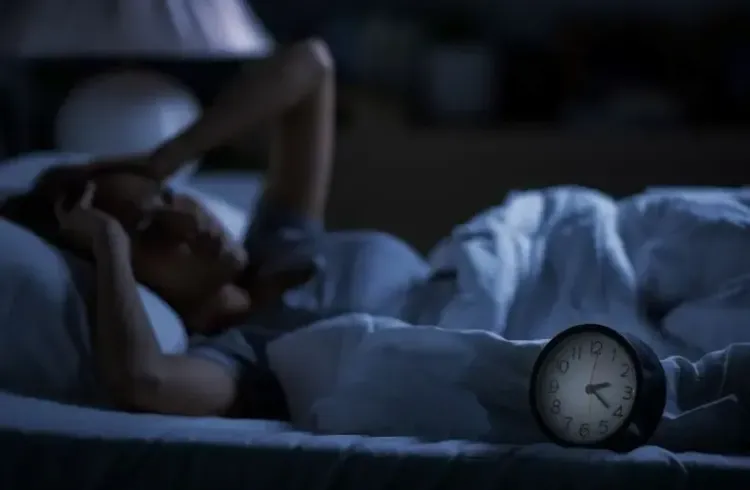Inadequate Sleep May Elevate Hypertension Risk in Teens

Synopsis
Key Takeaways
- Inadequate sleep raises hypertension risk in teens.
- Insomnia significantly increases the likelihood of clinical hypertension.
- Teenagers require 8 to 10 hours of sleep nightly for optimal health.
- Monitoring sleep health is crucial for cardiovascular risk assessment.
- Research findings emphasize the need for further studies on adolescent sleep patterns.
New Delhi, March 7 (NationPress) Adolescents who fail to achieve adequate sleep may face a greater risk of developing high blood pressure or hypertension—a prevalent risk factor for cardiovascular diseases—as indicated by research released on Friday.
Researchers from Pennsylvania State University in the United States defined insomnia as experiencing challenges in falling and/or remaining asleep, while they categorized objective short sleep duration as less than 7.7 hours, based on the median total sleep time observed in a laboratory sleep study.
The investigation encompassed over 400 teenagers in the United States, revealing that adolescents who reported insomnia and averaged less than 7.7 hours of sleep were five times more likely to experience clinical hypertension compared to “good sleepers”—those not reporting insomnia and achieving adequate sleep defined as 7.7 hours or more.
Teenagers sleeping under 7.7 hours but without insomnia complaints exhibited nearly three times the risk of elevated blood pressure compared to good sleepers. Interestingly, those self-reporting insomnia but attaining sufficient sleep did not show a heightened risk for elevated blood pressure or stage 2 hypertension.
The American Academy of Sleep Medicine recommends that teenagers require between 8 to 10 hours of sleep each night; however, the average high school student reportedly sleeps only 6.5 hours on weeknights.
The researchers emphasized that the combination of insomnia and insufficient sleep likely leads to more severe health issues than lack of sleep alone.
Professor Julio Fernandez-Mendoza from the university remarked that while poor sleep is recognized as a risk factor for high blood pressure in adults, its relationship with adolescents remains unclear.
“We need to investigate this correlation in broader studies involving teenagers, but it is prudent to assert that sleep health is crucial for heart health, and we should not postpone addressing this until adulthood,” Fernandez-Mendoza stated.
“Not every adolescent reporting insomnia symptoms is at risk for cardiovascular problems. However, tracking their sleep duration objectively can assist in identifying those with a more severe form of insomnia who are susceptible to heart issues.”
This study was shared at the American Heart Association's Epidemiology, Prevention, Lifestyle, and Cardiometabolic Health Scientific Sessions 2025, taking place in New Orleans.









